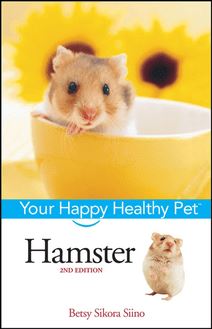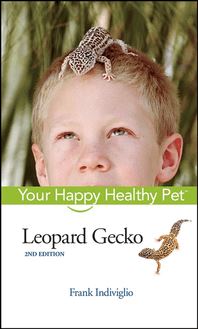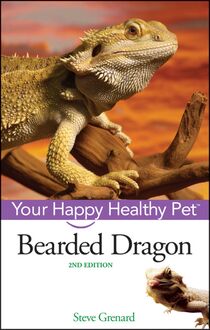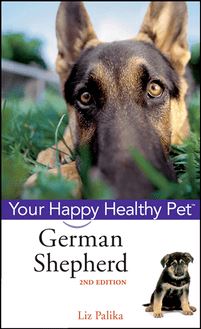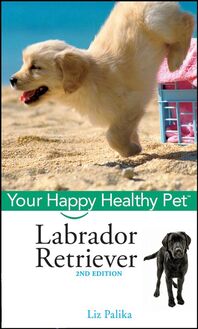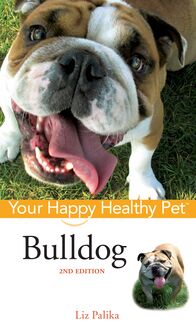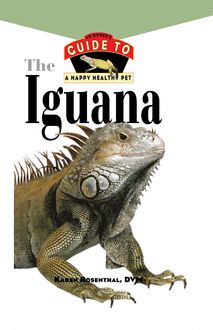-
 Univers
Univers
-
 Ebooks
Ebooks
-
 Livres audio
Livres audio
-
 Presse
Presse
-
 Podcasts
Podcasts
-
 BD
BD
-
 Documents
Documents
-
- Cours
- Révisions
- Ressources pédagogiques
- Sciences de l’éducation
- Manuels scolaires
- Langues
- Travaux de classe
- Annales de BEP
- Etudes supérieures
- Maternelle et primaire
- Fiches de lecture
- Orientation scolaire
- Méthodologie
- Corrigés de devoir
- Annales d’examens et concours
- Annales du bac
- Annales du brevet
- Rapports de stage
La lecture à portée de main
Vous pourrez modifier la taille du texte de cet ouvrage
Découvre YouScribe en t'inscrivant gratuitement
Je m'inscrisDécouvre YouScribe en t'inscrivant gratuitement
Je m'inscrisEn savoir plus
Vous pourrez modifier la taille du texte de cet ouvrage
En savoir plus

Description
PART ONE: Welcome to the World of the Basset Hound.
1. What Is a Basset Hound?
2. The Basset Hound's Ancestry.
3. The World According to the Basset Hound.
PART TWO: Living with a Basset Hound.
4. Bringing Your Basset Hound Home.
5. Feeding Your Basset Hound.
6. Grooming Your Basset Hound.
7. Keeping Your Basset Hound Healthy.
PART THREE: Enjoying Your Dog.
8. Basic Training (Ian Dunbar, Ph.D., MRCVS).
9. Getting Active with Your Dog (Bardi McLennan).
10. Your Dog and Your Family (Bardi McLennan).
11. Your Dog and Your Community (Bardi McLennan).
PART FOUR: Beyond the Basics.
12. Recommended Reading.
13. Resources.
Sujets
Informations
| Publié par | Turner Publishing Company |
| Date de parution | 05 mai 2008 |
| Nombre de lectures | 0 |
| EAN13 | 9780470354933 |
| Langue | English |
| Poids de l'ouvrage | 2 Mo |
Informations légales : prix de location à la page 0,0998€. Cette information est donnée uniquement à titre indicatif conformément à la législation en vigueur.
Extrait
The
Basset Hound
Howell Book House
Howell Book House A Simon Schuster Macmillan Company 1633 Broadway New York, NY 10019
Copyright © 1996 by Howell Book House All rights reserved. No part of this book may be reproduced or transmitted in any form or by any means, electronic or mechanical, including photocopying, recording, or by any information storage and retrieval system, without permission in writing from the Publisher.
MACMILLAN is a registered trademark of Macmillan, Inc. Library of Congress Cataloging-in-Publication Data is available from the Library of Congress upon request.
Manufactured in the United States of America 10 9 8 7 6 5 4 3 2
Series Director: Dominique DeVito Series Assistant Director: Ariel Cannon Book Design: Michele Laseau Cover Design: Iris Jeromnimon Illustration: Casey Price and Jeff Yesh Photography:
Front cover and puppy by Paulette Braun/Pets by Paulette
Back cover photo by Jean Wentworth
Courtesy American Kennel Club: 14 (bottom)
Joan Balzarini: 96
Mary Bloom: 96,136,145
Paulette Braun/Pets by Paulette: 5, 7, 8, 20, 21, 22, 23, 42, 61, 67, 90, 96
Buckinghamhill American Cocker Spaniels: 148
Sian Cox: 134
Dr. Ian Dunbar: 98,101, 103, 111, 116–117, 122, 123, 127
Dan Lyons: 45, 96
Cathy Merrithew: 129
Blackie Nygood: 12, 26, 44, 55
Liz Palika: 133
Cheryl Primeau: 54
Susan Rezy: 96–97
Don Smith: 62, 64, 65, 66, 83
Judith Strom: 14 (top), 16, 39, 68, 96, 107, 110, 128, 130, 135, 137, 139, 140, 144, 149, 150
Faith Uridel: 2-3, 10, 32-33, 50, 69
Jean Wentworth: 17, 27, 41, 87
Production Team: John Carroll, Kathleen Caulfield, Christina Van Camp, and Vic Peterson
Contents
part one
Welcome to the World of the Basset Hound
1 What Is a Basset Hound?
2 The Basset Hound’s Ancestry
3 The World According to the Basset Hound
part two
Living with a Basset Hound
4 Bringing Your Basset Hound Home
5 Feeding Your Basset Hound
6 Grooming Your Basset Hound
7 Keeping Your Basset Hound Healthy
part three
Enjoying Your Dog
8 Basic Training by Ian Dunbar, Ph.D., MRCVS
9 Getting Active with Your Dog by Bardi Mclennan
10 Your Dog and Your Family by Bardi McLennan
11 Your Dog and Your Community by Bardi McLennan
part four
Beyond the Basics
12 Recommended Reading
13 Resources
part one
External Features of the Basset Hound
chapter 1
What Is a Basset Hound?
The Basset Hound: Avid hunter or couch potato? Melancholy or joyful? Playful or dormant? A picture of dignity or avowed clown?
If you share your home with a Basset Hound, you already know that your pet is all of the above. The Basset Hound’s looks belie its personality at almost every turn. Often called “the clown of the dog world,” the Basset’s greatest joy comes in making family and friends laugh—unless, of course, he’s engaged in another favorite pursuit, like snoozing on the couch or following his nose in pursuit of a rabbit.
As with most “working” breeds, the Basset Hound’s form relates directly to its function, although that form will differ to some extent from one dog to another. However, certain physical characteristics combine to define a dog as a Basset Hound.
A Scent Hound
An adept hunter, the Basset Hound is part of that category of dogs known as “scent hounds,” hounds who hunt by using their sense of smell rather man their vision. The Basset Hound nose is among the keenest of all breeds’—perhaps the keenest—enabling him to easily follow the scent of a rabbit or other quarry. The short legs are no deterrent to the Basset Hound’s agility. Despite their strange build, these hounds are capable of following a rabbit over all terrain, through thick brush, over logs and through streams (although they may tackle that last obstacle with some reluctance).
The AKC Standard
The Basset Hound is built to perform a specific task with optimum efficiency, and his appearance relates directly to his assignment. Designed as a low-slung trailing hound, the Basset Hound should possess great physical stamina in order to carry out his job in the field. Exaggeration of any of the typical Basset Hound characteristics can destroy the dog’s performance in the field and therefore should be avoided.
WHAT IS A BREED STANDARD?
A breed standard—a detailed description of an individual breed—is meant to portray the ideal specimen of that breed. This includes ideal structure, temperament, gait, type—all aspects of the dog. Because the standard describes an ideal specimen, it isn’t based on any particular dog. It is a concept against which judges compare actual dogs and breeders strive to produce dogs. At a dog show, the dog that wins is the one that comes closest, in the judge’s opinion, to the standard for its breed. Breed standards are written by the breed parent clubs, the national organizations formed to oversee the well-being of the breed. They are voted on and approved by the members of the parent clubs.
With the breed’s origins and traditional activities in mind, The Basset Hound Club of America drew up the first standard for the Basset in this country. The American Kennel Club (AKC) ratified this standard in 1964, and it has served since then as the blueprint for the Basset Hound’s appearance.
Ideally, every Basset Hound should live up to the standard of excellence adopted by the Basset Hound Club of America and approved by the American Kennel Club. This is the description of the “perfect” Basset Hound, and those competing in the show ring are measured against the standard. In the discussion below, italicized text is the official standard; the author’s commentary follows in regular text. (For a complete copy of the Basset Hound Standard, contact the American Kennel Club. See Chapter 13 , “Resources,” for the address.)
General Appearance
The Basset Hound . . . is a short-legged dog, heavier in bone, size considered, than any other breed of dog, and while its movement is deliberate, it is in no sense clumsy. In temperament it is mild, never sharp or timid. It is capable of endurance in the field and is extreme in its devotion.
The wrinkles on the Basset Hound’s head help him trap and follow the scent of prey.
Although the standard does not specify the exact dimensions of the ideal Basset Hound, most breeders would agree that the height at the withers should be about three-fourths of the length from withers to tail. Those who tend to think of the Basset Hound as a “small” dog should reread the section above: “heavier in bone, size considered, than any other breed of dog.” In reality, the Basset Hound is a large dog on short legs, typically weighing anywhere from fifty to seventy pounds.
H EAD
The head is large and well proportioned. Its length from occiput to muzzle is greater than the width at the brow. In over-all appearence the head is of medium width. The skull is well domed, showing a pronounced occipital protuberance. The sides are flat and free of cheek bumps. Viewed in profile the top lines of the muzzle and skull are straight and lie in parallel planes, with a moderately defined stop. The skin over the whole of the head is loose, falling in distinct wrinkles over the brow when the head is lowered.
The Basset Hound head should be large and well proportioned, of medium width with a well-domed skull showing a “pronounced occipital protuberance.” When the head is lowered, loose, distinct wrinkles should be evident over the brow. The elasticity and wrinkles help protect the Basset Hound’s skin from puncture wounds during field work. It is theorized that these folds of skin may also help the dog detect the scent of the prey.
Long, velvety ears are a hallmark of the Basset Hound.
The nose itself should be black, although a liver-colored nose is permissible if it conforms to the color of the dog’s head. The teeth should be large and regular, and the jaws should meet in either a scissors or an even bite. An overshot or undershot bite is considered a serious fault in the show ring, although it is not likely to interfere with a pet’s appetite or ability to chow down.
The lips are darkly pigmented and are pendulous, falling squarely in front and toward the back, in loose hanging flews. The dewlap is very pronounced. The neck is powerful, of good length and well arched.
The neck is particularly important to the Basset Hound’s ability to hunt. It should be sufficiently long to allow the nose comfortably to reach the ground and do its work. Too short a neck can strain the dog, thus impeding its progress in the field.
The eyes should be soft, sad, and slightly sunken, showing a prominent haw, and in color are brown, preferably dark brown. A somewhat lighter colored eye conforming to the general coloring of the dog is acceptable but not desirable. Very light or protruding eyes are considered show ring faults.
Without those spectacular “puppy dog eyes” the Basset would not be half as charming.
Though his legs are short, the Basset Hound cannot be considered a small dog.
The ears are extremely long, low set, and when drawn forward fold well over the end of the nose. They are velvety in texture, hanging in loose folds with the ends curling slightly inward. They are set far back on the head at the base of the skull, and, in repose, appear to be set on the neck. A high set or flat ear is a serious flaw.
The ears are the hallmark of the Basset Hound’s appearance. However, though an integral part of the breed’s appearance, long ears should not be exaggerated. The ears serve a valuable function in stirring up the scent in the field, but they should not be so long as to interfere with the dog’s work.
B ODY
The chest is deep and full with a prominent sternum showing clearly on the front of the legs.
A chest of this style and fortitude gives the Basset Hound the stamina necessary for a full day’s work.
Shoulders and elbows are set close against the sides of the chest. The distance from the deepest point of the chest to the ground, while it must be adequate to all
-
 Univers
Univers
-
 Ebooks
Ebooks
-
 Livres audio
Livres audio
-
 Presse
Presse
-
 Podcasts
Podcasts
-
 BD
BD
-
 Documents
Documents
-
Jeunesse
-
Littérature
-
Ressources professionnelles
-
Santé et bien-être
-
Savoirs
-
Education
-
Loisirs et hobbies
-
Art, musique et cinéma
-
Actualité et débat de société
-
Jeunesse
-
Littérature
-
Ressources professionnelles
-
Santé et bien-être
-
Savoirs
-
Education
-
Loisirs et hobbies
-
Art, musique et cinéma
-
Actualité et débat de société
-
Actualités
-
Lifestyle
-
Presse jeunesse
-
Presse professionnelle
-
Pratique
-
Presse sportive
-
Presse internationale
-
Culture & Médias
-
Action et Aventures
-
Science-fiction et Fantasy
-
Société
-
Jeunesse
-
Littérature
-
Ressources professionnelles
-
Santé et bien-être
-
Savoirs
-
Education
-
Loisirs et hobbies
-
Art, musique et cinéma
-
Actualité et débat de société
- Cours
- Révisions
- Ressources pédagogiques
- Sciences de l’éducation
- Manuels scolaires
- Langues
- Travaux de classe
- Annales de BEP
- Etudes supérieures
- Maternelle et primaire
- Fiches de lecture
- Orientation scolaire
- Méthodologie
- Corrigés de devoir
- Annales d’examens et concours
- Annales du bac
- Annales du brevet
- Rapports de stage

